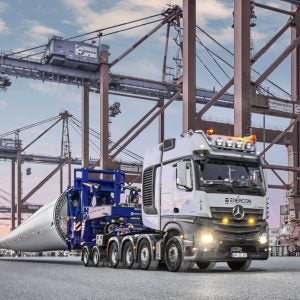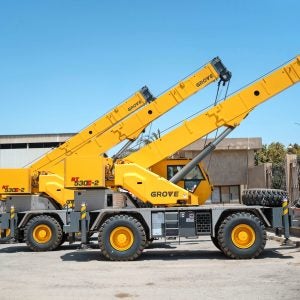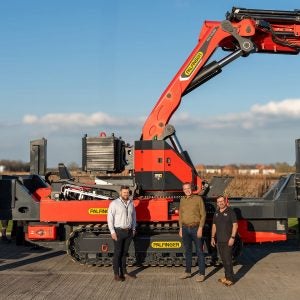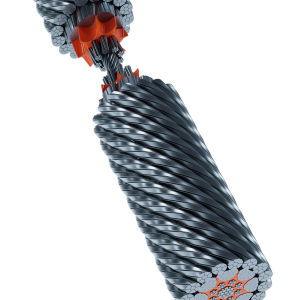With the sale of Atlas’s German business only completed days before Bauma opened, the newly independent company’s cranes were sharing space with their former cousins on the Terex stand. I met Fil Filipov in a small office in Terex’s distributors’ meeting area. While I waited, he strode back and forth from the office to dealers and colleagues outside, pausing only to comment: “I thought I’d retired.”
“Normally when I leave something, I leave others to work on it,” he says. “Once I’ve left, I’m not one to interfere. I own, manage or finance several companies around the world. I have a big logistics company in Germany and with Atlas, more than 1,200 people are working for me in Germany and other companies in France, Holland, China, and Bulgaria: for a retired guy, I’ve been busy.”
The Atlas deal has marked a return to previous interests for Filipov. Working with Terex’s now chairman and CEO Ron DeFeo, he brought Atlas into Terex in 2001. “I was first in excavators with Poclain in France in 1988,” Filipov says. “They were known for special adaptations. With Atlas, I want to bring in the possibility to do special units, anything the customer wants and as complete unit as possible.”
The first time around, Filipov says, “I was hoping for the volume, which is in 20–25t crawler excavators. We failed to deliver on that. Atlas makes a niche product. It is mainly known for rubbertyred excavators in Germany, France, the Benelux countries and the UK; that is 85% of its sales.”
Speaking over the phone from Connecticut to journalists at a Terex press event earlier that day, Terex chairman and CEO Ron DeFeo said, “For many years, we looked to Atlas as the beginning of trying to build a global excavator business. We were not successful in buying the sort of Asian manufacturer we were looking for. We needed to change direction.”
The way things were, DeFeo said, was not good for Atlas, or for Terex shareholders.
That is where Filipov came in. “It was a mutual conversation,” Filipov says. “I knew they were trying to sell, and that others had looked at it. I’m very good at bad times.”
Filipov has no doubts about DeFeo’s ability to use the deal as part of a plan to push Terex forward: “What Atlas handlers do is completely different to a crane: they are attachments to trucks, mostly for loading and unloading.
“That business doesn’t fit in with regular cranes. I don’t think Terex had any choice though, but to put it into their cranes segment. Terex has done very well, going from a $2bn business to a $10bn business a couple of years ago.
“I am sure they will bring that same magic out of the bottle again.
“Ron DeFeo is a very shrewd businessman. He brought Terex to where it is. He will do something now that is a surprise to others.”
As DeFeo builds a new Terex, Filipov will be moving fast to make Atlas Maschinen a success: He says there will be, “no major restructuring. With all the extra work we aim to bring on, I believe we can become profitable. I’d normally measure the success of a new business over nine months: that’s enough for a baby to be born; I hope this doesn’t turn out to be an elephant baby.
“I will do a 100-day plan. Cost reduction is an expected part of that. Growth is not necessarily a part of the business plan: profitability is. I plan to move quickly, with a direct style of management.
“On the crane side, Atlas has a good business in the UK, offering complete setup and product support. In Germany, I’d like to bring up Atlas’s market share. There, it is around 10%: the competition is quite tough.
“I have no plans for changes to distribution. I’ve brought back the Atlas colours and name. Everyone at Bauma seems very happy about that. The dealers are pleased with the speed of change. We’ve put out a new brochure and distributed new business cards to all employees. Atlas is a good name, with a great future. We will do better tomorrow than yesterday, with our current dealers and customers.
“I’m not looking to the US or Canada, but to expand market share in areas Atlas already participates in. It is so much easier to work where you are, than spend money and effort on other areas.” The business case for Filipov’s return to Atlas is clear; what though was his personal motivation? “I like to quote Voltaire, who said ‘work keeps us from three evils: boredom, vice, and poverty’.
“When you are running a big business, in a conglomerate, you do it one way. When you run a small company, you do it in another. There are certain people in the corporate world who do well as CEOs; there are others who do well as entrepreneurs. I did well at Terex when it was entrepreneurial. I am not a corporate guy. I do better in an environment like I am in now.”






